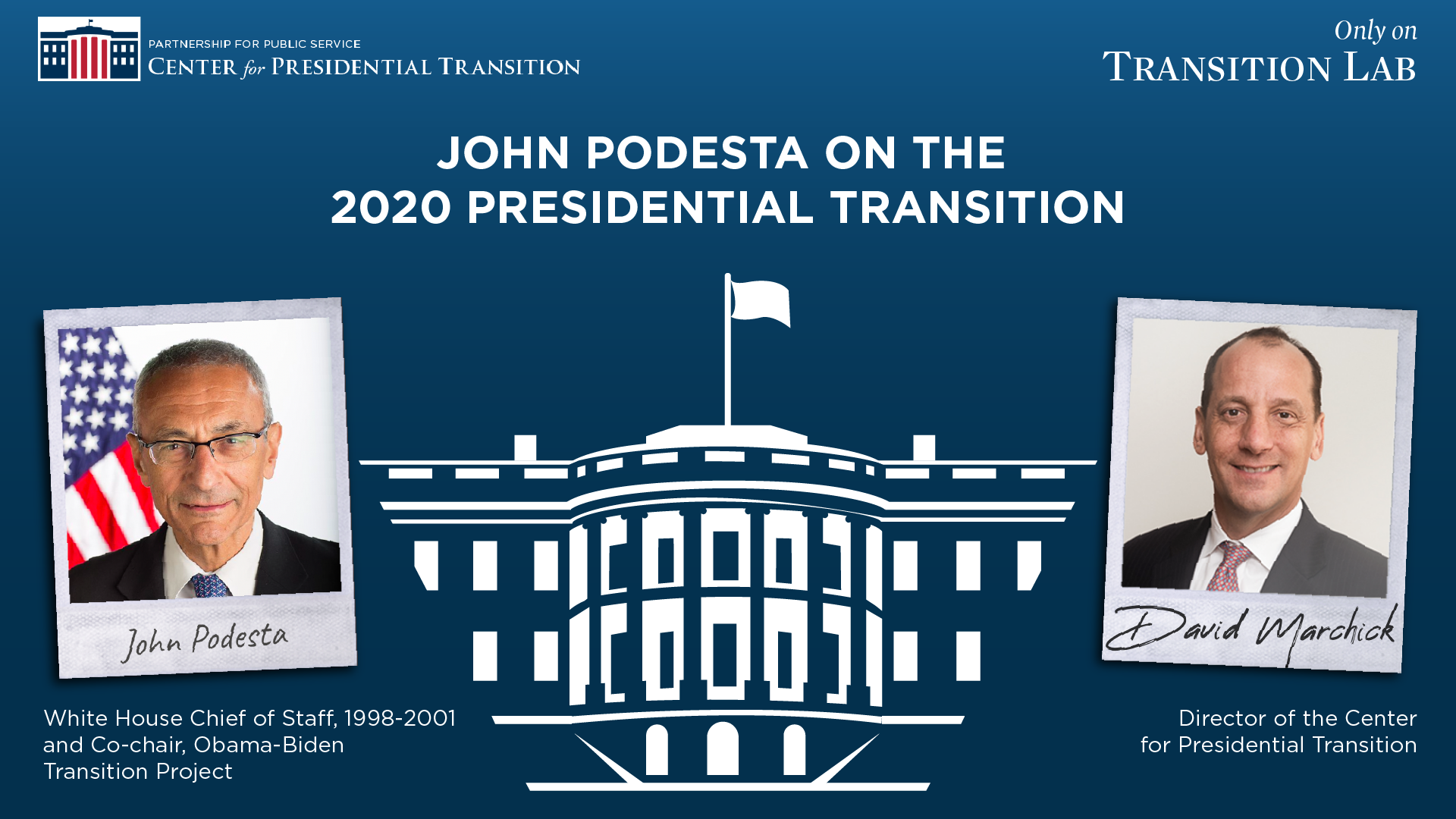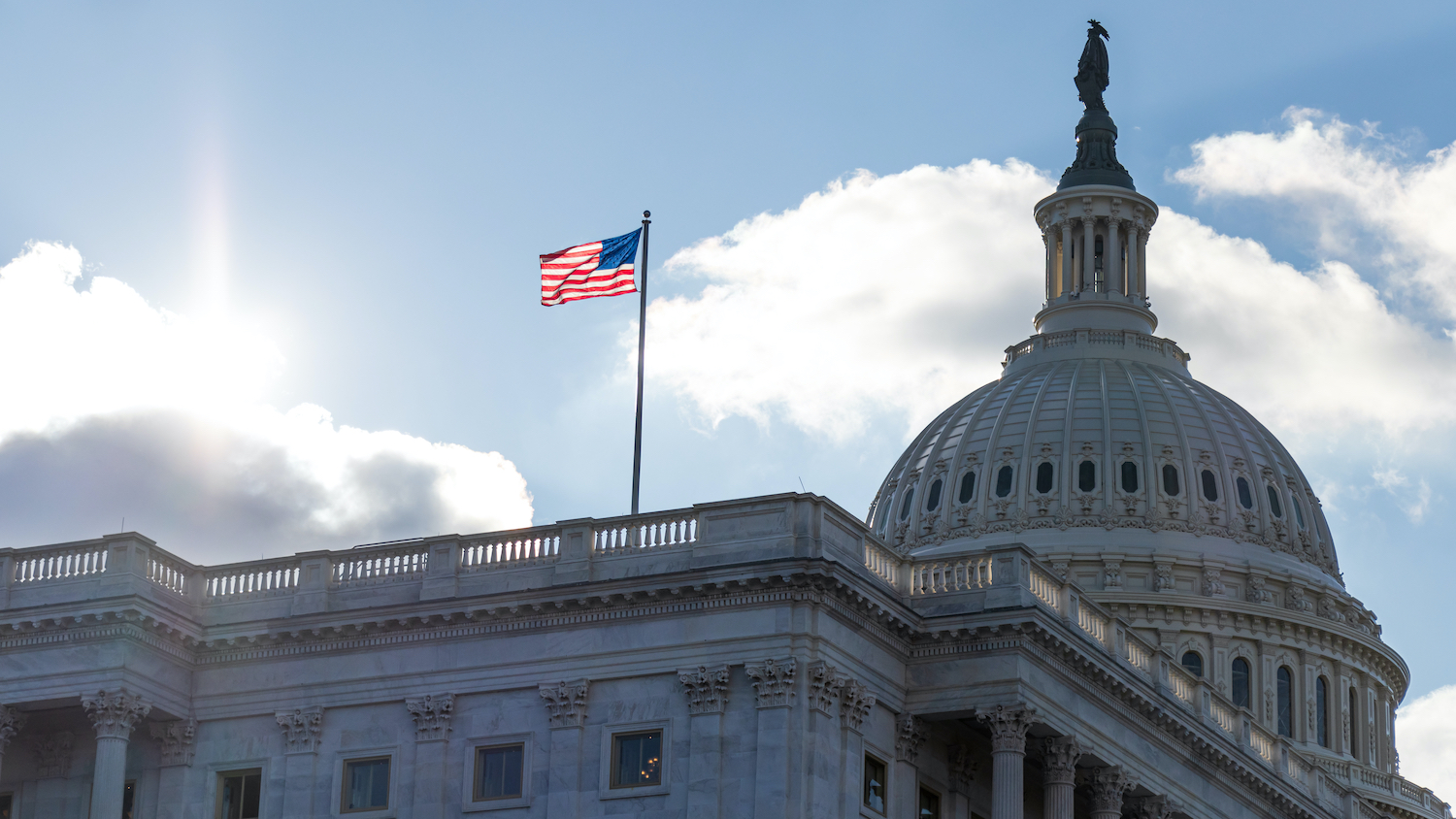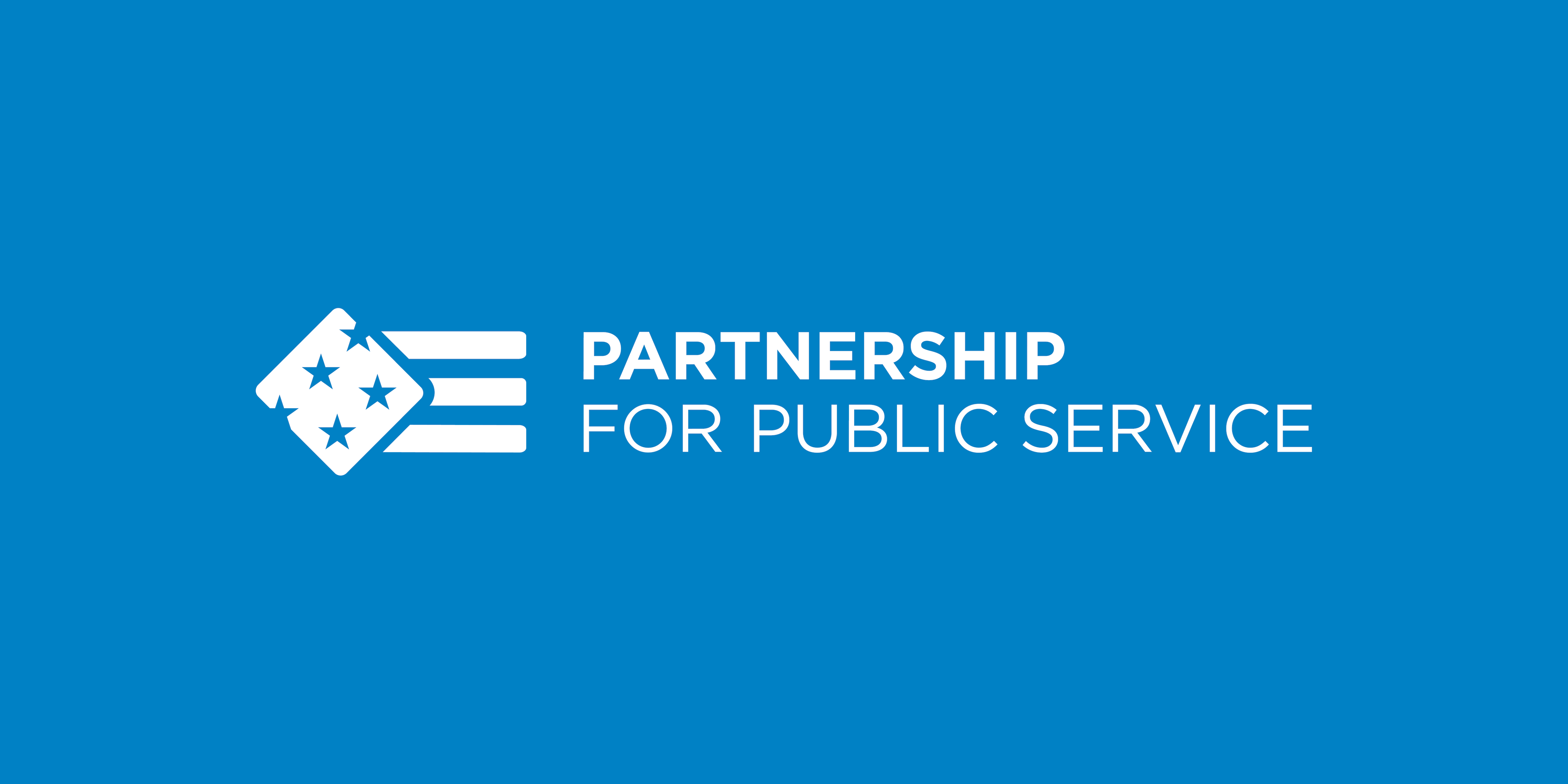Blog
November 02, 2020
John Podesta on the 2020 Presidential Transition
John Podesta served as President Bill Clinton’s White House chief of staff from 1998 to 2001, founded the Center for American Progress, was the co-chair of Barack Obama’s presidential transition in 2008-2009 and chaired Hillary Clinton’s presidential campaign in 2016 while overseeing her pre-election transition activities. Podesta talked to Transition Lab Host David Marchick about his transition experiences during victorious and unsuccessful elections, offered advice on political and judicial appointments, suggested climate change will be high on Joe Biden’s agenda if he wins and discussed the challenges Biden may face with the Trump White House if he becomes the president-elect.
[tunein id=”t158441060″]Read the highlights:
John Podesta talked about the importance of a president-elect picking the White House staff before making Cabinet selections.
Podesta: A lesson that I learned from the Bill Clinton transition that I think was really helpful in the Obama transition was that Clinton prioritized spending all those early days selecting his Cabinet, but he did that to the exclusion of picking his White House staff. …I think he tripped up in not spending more time on his White House staff early. I raised that with then Senator Obama…We discussed this, and we corrected that [during the 2008-2009 transition] and really built the White House staff first, which helped him then fill out his Cabinet… I think that was a better way to run the transition
Podesta discussed the need for a new president to get political appointees quickly confirmed by the Senate.
Podesta: I think you could…make quick decisions, make good decisions, accelerate that process, pressure the Senate to act and be fully engaged in getting your people inside the government. That’s something I think that was particularly slow under President Clinton. We got the Cabinet done right away and then the rest took forever. We improved upon that with Obama, but I think you can really jack that up.
Dave Marchick asked Podesta about the transition from President Clinton to George W. Bush in 2000 when he was Clinton’s chief of staff and the election dispute delayed the outcome.
Podesta: We tried to be professional…to give people a real sense of what the challenges are, what the opportunities are, what the budget looks like, what the inspector generals were saying about the problems that needed correction. …We took that responsibility quite seriously. [Before the election was decided], Governor Bush and his team were able to get access to the highest-level secrets so that they could begin to prepare for their approach to the big security challenges that the country was facing. I think one of the effects of that truncated period of time was we were unable to put the focus of their security team on the threat of Osama bin Laden that was well-documented in the 9/11 Commission report.
Marchick asked Podesta why he was picked to lead Obama’s 2008 transition when he had supported Hillary Clinton during that year’s presidential primaries.
Podesta: I was friendly with Obama. I worked with him when he was a senator when I was running the Center for American Progress. …I was somewhat surprised when he asked me, but I think he thought my experience as White House chief of staff was quite relevant. … I think to his credit, Obama really liked and respected people who would challenge him, fight with him…He wasn’t paranoid about having people who were tough and certainly not sycophants around him.
Marchick asked Podesta about Hillary Clinton’s 2016 pre-election transition planning.
Podesta: We ran a full-blown pre-election transition. …Over the years, it has become more acceptable to be serious about working on the transition before the election. …In Hillary’s case, we had probably a bigger team than even I had in 2008 [with Obama] because it was just more politically acceptable. It wasn’t viewed as presumptuous or measuring the drapes. …One of the things that we were able to do was to take her promises on the campaign trail and think about how we would really be able to execute [them.] That policy process was very well done before the election. Unfortunately we didn’t get to utilize it.
Marchick asked Podesta about the pain of losing the 2016 presidential election.
Podesta: [Election night 2016 ] was emotional…for everybody. There were thousands of supporters that were still in the Javits Center. We were still looking at the vote count when I went over to buck people up as best as I could. …It was one of the hardest things I’ve probably ever had to do. …Even though we were still counting votes, we were behind. …[Hillary] Clinton gave a really magnificent and gracious speech the next morning to the team. But look, those weeks were brutal…shutting the office down and trying to deal with…a lot of people around the country who really felt crushed.
Marchick asked Podesta whether he expects the White House will ensure a smooth transition if President Trump loses the election, especially given the many crises facing the country.
Podesta: We are coming into a transition where you have a very kind of erratic decision decision-making structure… where you have a president who is likely to say the election was rigged if he loses… It’s a very challenging circumstance, but I think the Biden team understood this right from the get-go. It does take the commitment of the president, the president’s chief of staff and the rest of the White House structure to make it work smoothly, but they’ll get what they get, or as the president likes saying, `It is what it is.’ So they’ll just have to deal with with whatever comes their way, but they will have to… get a White House that’s up and running and functioning in a crisis mode to deal with a pandemic… and work on these other issues and problems simultaneously.
If Joe Biden wins the presidency, Marchick asked what advice Podesta would give to those seeking a political appointment.
Podesta: The best way to get a job is if…you’re perceived to have… helped Vice President Biden and Senator Harris get elected. But they want to reach beyond just the people in that camp. …A lot of this is obviously the way professional headhunting works, which is you’re looking for talent in a variety of different places, but there are also people who kind of come into the process by putting their hand up and I would encourage people to do that. …You can demonstrate that you have some support, but you don’t want to be a pest. You have to find the right balance between…having a few key members of Congress…make a phone call or two, but if you overdo that, you can annoy people too.
Podesta suggested that Biden should make judicial nominations and the Supreme Court a priority if he is victorious.
Podesta: I have my criticisms of the way both [federal appeals court judge] Merrick Garland wasn’t considered [by the Senate for the Supreme Court] in 2016 and the way they [the Republicans] accelerated Amy Coney Barrett’s nomination [for the Supreme Court] in 2020, but you see how much they [the Trump administration] prioritized that. They have filled up the [judicial] seats. …[The Biden team] really needs to consider their plan. How are they going to deal with a judiciary that has been packed? You know, the question for Biden is now, `Will you pack it [the Supreme Court]?’ Well, it has been packed. And so what are you going to do about that? Biden has some ideas around a commission to take a look at that, but I think they’re going to have to make that a higher priority than I think the Obama team did.
Marchick asked how Biden should handle the climate crisis if he becomes president.
Podesta: If there is a Democratic Senate, he needs a very ambitious program of investment to change the energy system, to get on track to a net zero emissions trajectory by 2050 and to have a 100% clean power sector by 2035. …Then he has to make good on that investment strategy. [He needs to] get credible globally by doing the job domestically. …An all of government approach is needed. …I think he has to put climate change at the center of his foreign policy. That doesn’t mean just returning to the Paris agreement, which I think he will do, …but he has to increase the ambition everywhere. [This involves an] economic transformation on the size and scale that’s never occurred in human history.



